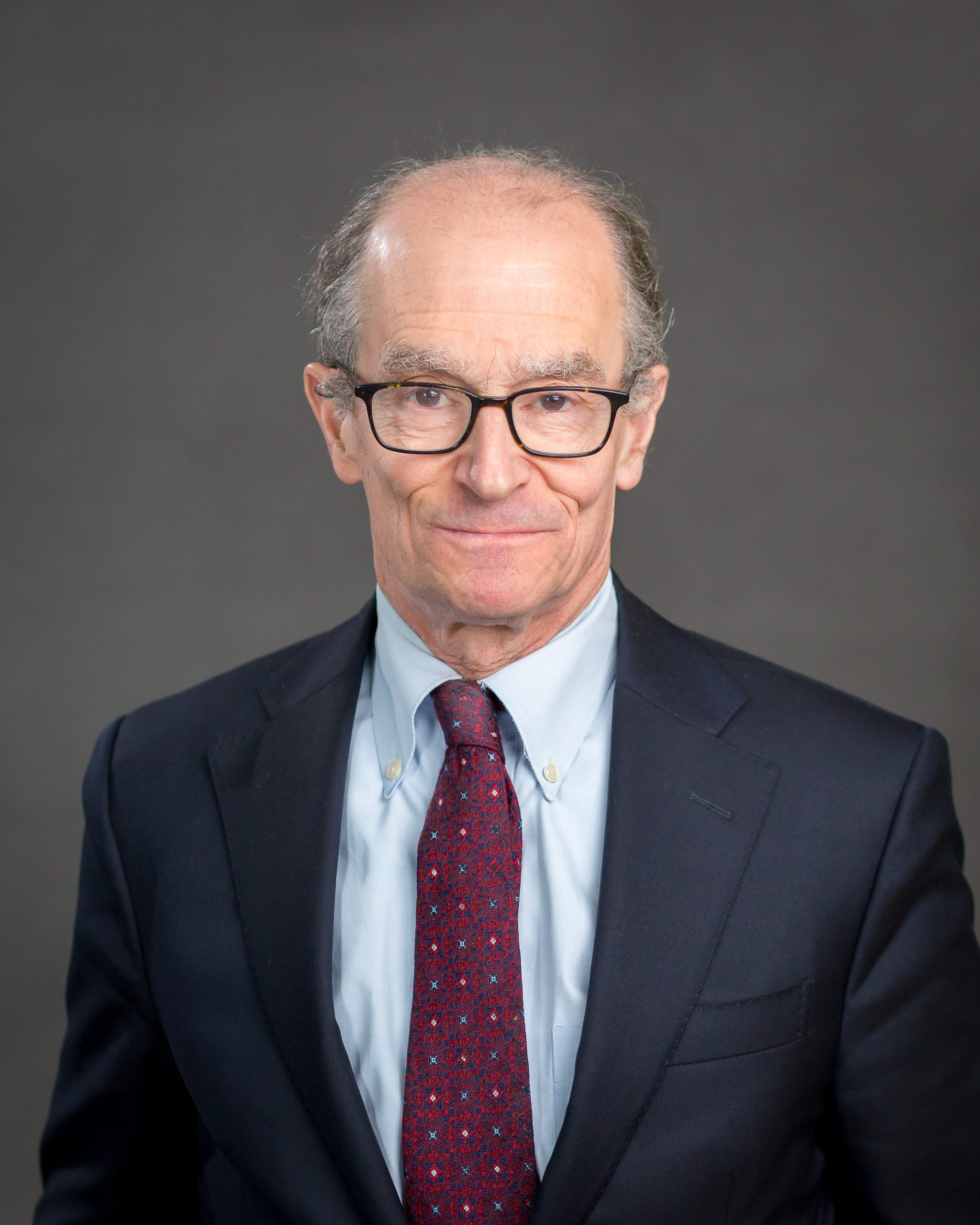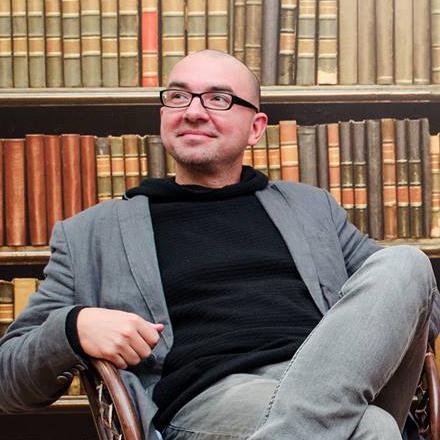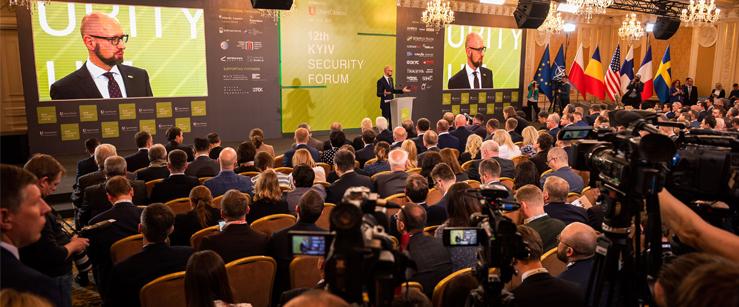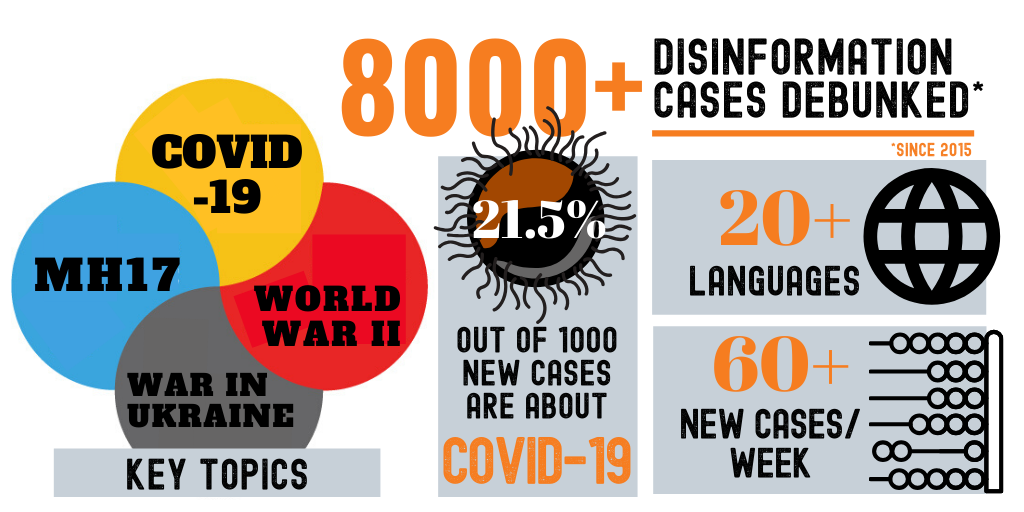This year, due to the COVID-19 lockdown, the forum conducted 13 online sessions. Key topics included the lack of trust of democratic politics in the US and Europe, rising Chinese authoritarianism and its growing influence, and Russia’s ongoing aggression. With regard to Russia, talks focused on the Minsk Agreements reached in 2014/2015 between Russia and Ukraine. Agreements that are no longer relevant since they are constantly violated by Russia’s proxy insurgents but at the same time they cannot simply be replaced because they define international sanctions against Russia.
Lack of trust

Lack of trust was the key thesis of the 15 May 2020 online discussion. Anne Applebaum, American author and historian, stated that the line of political demarcation is no longer between dictatorships and democracies. The main difference — which has appeared all over the world — is the difference between states where leadership inspires trust among their populations during crises, and states where such trust is lacking.
Notably, certain democracies have managed to maintain their peoples’ trust during times of crisis: Germany, Taiwan, South Korea, and a number of other countries — particularly those of Central Europe.
On the other hand, a country that has failed to inspire trust is the United States, which today is experiencing deep societal divisions. The obvious question becomes, if they cannot unite on a national level to a crisis in domestic security, how can they coordinate an international response?

However, Daniel Fried, American diplomat and former US Assistant Secretary of State for European and Eurasian Affairs, cautioned against underestimating the endurance of state democracies. Concurring with Applebaum regarding the current deficit in trust, Fried pointed out that as a well-weathered politician he remembers many times when predictions were rife for the decline and fall of America. But it did not happen.
The importance of strong leadership by the EU and the US in the contemporary world arena was highlighted by Yatsenyuk. In particular, he referred to a meeting 13 years ago with Daniel Fried and then-US Secretary of State Condoleezza Rice.
At the time, Minister of Foreign Affairs Yatsenyuk showed them a map of Ukraine, saying “Ukraine is surrounded by Russian military forces. Look at Belarus, Russia, the events in Crimea, in Transnistria. We are under Russian siege."
His words were not in vain. Seven years later, Russia illegally annexed Crimea and then invaded the eastern territories of Donetsk and Luhansk oblasts.

Yatsenyuk emphasized that today we need a powerful United States more than ever. American leadership, together with a strong transatlantic unity between the US and the EU, is the best recipe to restrain and ultimately stop dictators such as Putin.

Acknowledging the importance of a united democratic world, Rebecca Harms, German politician and Member of the European Parliament (2004-2019), called upon Europeans to be loyal to transatlantic unity. At the same time, she criticized the White House for its chaotic politics. The EU still depends on NATO for its security, which is not a bad thing. That dependence translates into a longstanding and positive relationship.
Harms called upon the EU not to discuss a scenario for security without the US -- rather to increase their contribution to the shared goal of strengthening the security of the Western alliance. Isolationism -- also an important topic for Ukraine -- cannot be the solution for securing democracies from dictators.
Russian tactic of chaos to reach dominance and Russia’s expansionist nature
Peter Pomeranzev, British journalist and author, and Visiting Senior Fellow with the Institute of Global Affairs (London School of Economics), stressed that disruption and disintegration is precisely the tactic that Russia applies to its geopolitical rivals. In particular it foments this chaos in the US, Ukraine, and the Baltic states.

He asserted that the current information space, especially the powerful medium of social networks, easily becomes a war of “All Against All.” These are very favorable conditions for Russian propaganda, which always strives to break the link between democracy and prosperity. They use Ukraine as an example: “They fought for democracy and received war and ruin.”
In disseminating information there are any number of campaigns conducted in Ukraine with a single objective — to convey the narrative that Ukrainians fought for freedom and only gained blood.
It is Putin's unique brand of anti-ideology. The part of the Russian playbook that says, “Yes, we may have corruption, but corruption is everywhere, so there is no point in striving for progress.”
The message is that it makes no sense to strive for a better future because everything is rotten. Putin is even ready to start wars to prove that "everything is rotten."
Arseniy Yatsenyuk said there is no real, full freedom of speech anymore. Instead, in certain parts of the world, there is a form of communication that can be called "freedom of lies." This warped view of truth is the biggest challenge for struggling democracies -- especially Ukraine. Putin controls 50% of all the news channels in Ukraine. He can easily take hold of people’s hearts and minds through at least half of the news being reported to the nation.
But Putin's goal is not to broadcast his own narrative. Putin's goal is to undermine the truth. His ultimate goal is to ensure chaos in Ukraine, as well as the Western world.
Anne Applebaum was in full agreement, but added that the best response from the Ukrainian side is to create an attractive alternative. In other words, a high-quality, public broadcasting TV channel -- the kind that exists in other democracies, such as BBC in England, PBS in America, and CBC in Canada. The existing public broadcasting channel simply cannot compare due to drastically limited financing and many other obstacles. A fresh, vibrant response could be the best formula to pull people away from the oligarch-owned, propaganda-fed, media outlets to other options.
A much-shared vision for Ukraine is to see a well-funded, publicly-supported broadcaster that is grounded in accurate, unbiased programming -- not only in news and information, but in entertainment and the arts, in education and history, in sports, and in an array of other interests to the Ukrainian media consumer.

Commenting on the reasons behind Russian information attacks, Volodymyr Yermolenko, Ukrainian philosopher; Internews Ukraine analytics director; and UkraineWorld editor-in-chief, said that the basis for Russian aggression is the inability of the Russian state to focus on its internal issues -- as most states do -- and instead use expansion as the justification of its own existence.
Putin himself has described Russia as a bear that protects his own taiga, but simultaneously expands his domain. This explains the concept of civilization that Russian ideologists Alexandr Dugin and Antonin Ladynsky gladly adhere to.
Yermolenko claims that we are going back to what is called “zoopolitics,” a metaphor for the beautification of violence through mass culture; for example, through film. This would be comparable to the atmosphere experienced by the generation of the First World War when in 1913 young people rushed to the front to die.
Should the Minsk Agreements remain to stop Russian aggression?
Arseniy Yatsenyuk stated that in the current conditions the Minsk agreements are a road to nowhere. The Russians are urging Ukraine to legitimize their puppet-states through so-called "local elections," and want to create dubious consultation groups that would include representatives of Donetsk and Luhansk. Russia's thinking is to destroy Ukraine as an independent state. Implementation of the Minsk agreements, according to the Russian interpretation, would be a catastrophe for the Ukrainian people and the Ukrainian state.
Anne Applebaum, Daniel Fried, and Rebecca Harms noted that despite their inefficiency and well-deserved criticism, the Minsk agreements serve as the foundation for sanctions against Russia. The best tactic is to focus on the ceasefire, as Ukrainian politicians have for the last six years but Russia still fails to implement.
Fried, in his closing remarks to the forum, urged participants that Russian aggression should be understood in a context wider than just a military campaign for Ukrainian territories. Russia is not interested in Donbas, and only partially in Crimea. Putin attacked Ukraine in 2014 not to annex Crimea and seize Donbas, but to block the reformist pro-Western course of Ukraine.
This distinction is extremely important because it defies the Russian narrative of protecting their “brothers” and their lands. If Ukraine had more or less followed the same course as Poland did 30 years ago — actively repelling the Soviets and laying the path to the reforms -- such a Ukraine would have been a devastating blow to Putinism. It would have demonstrated to the Russians that an alternative path was possible for Ukraine and is still possible for them.
Read also:
- 95 percent of Russians now say victory in 1945 was main event for Russia in the 20th century
- Reputed Czech furniture company doing business in Russian-occupied Donetsk
- Putin says Russia gave land to republics and none should have left without giving it back
- Sanctions on Russia are working, but they’re not enough
- The Kremlin’s lobby in Europe: Italy
- “Let’s get the popcorn ready” – Russian tv covers US protests





